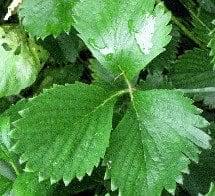Preparing new beds for spring planting is a lot of work on your own. Chickens are great helpers in the garden if you let them. Their little feet are built in rakes for clotted soil. The beds I didn’t let the chickens work last year were plagued by cutworms and cabbage moths, but the chicken-tended ones were pest-free. Chickens close the loop in our artificial gardening cycle. They make organic gardening much easier since they eliminate the bugs that are vectors for plant diseases.
Tools Needed for Gardening with Chickens:
- Small weeding tools
- Compost
- Shovel
- Wheelbarrow or Buckets for carrying compost
- Garden Beds
- Fencing or a Cloche or Tomato Cages
- Chickens
Procedure for Setting Chickens to Work in the Garden:
- First, open the area for the new seed beds to the chickens. Pull larger weeds and debris out as the chickens scratch around with you looking for bugs and worms. If the chickens show no initial interest in the open ground, throw a handful of non-sprouting feed like hammered barley onto the soil to engage their interest.
- The new soil is now ready for its second layer. Dump a fresh pile of compost on the new beds. There’s no need to spread it, the chickens will do that for you. Give them a few hours and the beds will be level, raked, and prepared for seedlings.
- Allow your chickens to dig for several days. They’ll get the soil completely turned, leveled out, and shifted. There’s no reason to use a hoe or a rake if you have a few chickens to help with the gardening. Chickens will also spread pea gravel and mulch if you’re smart.
- If you’re lucky, the chickens may have left nitrogen rich gifts in the soil along the way. A little chicken poop goes a long way. When you’re ready to plant, throw a little soil over the gifts and keep the new plants a short distance from the droppings to prevent nitrogen burn. Watering the new plants will also help break down and distribute the nitrogen throughout the soil properly.
Follow-up for Gardening with Chickens:
Fence the new beds or cloche them to keep the chickens out of the beds until the new plants are strong enough to withstand the disturbances scratching chickens will have on their roots. New plants can also benefit from tomato cages when you let the chickens in to weed the baby plants through the growing season. Some chickens are fairly strong flyers. To keep them out of mischief, throw a sheet of light bird netting over top of the fencing as extra insurance.
Some chickens are more aggressive than others and will bite through the cages to get at baby plants or dig up seeds. Often these chickens must be controlled with better fencing or new distractions like fresh compost in another area of the yard. With attention, the garden beds will be healthier and more productive with the help of your feathered garden friends than ever before, and you’ll have more time for enjoying its bounty.
Healthy compost is key to a robust organic garden. If you have chickens, consider making your compost pile an open compost bin. Be sure your bin is sturdy enough to withstand chicken foot traffic and has sides high enough to keep the hens from kicking out the debris but low enough for them to safely get in and out.
Chickens will eat your worms, but most worms burrow deep enough to avoid their sharp beaks. Other compost critters like soldier fly larva aren’t so lucky. Chickens attack the job of clearing your compost of soldier fly larva with vigor. Keep in mind soldier fly larva also eat worms, so this chicken behavior isn’t as bad as it sounds. Chickens aren’t deep diggers in moist soil. If your compost is dry enough the girls can make deep holes, it’s time to add water and more greens to your compost.
Organic gardening is the way to go for lots of reasons, but chickens reinforce this method. Who needs chemical fertilizers when you have chickens broadcasting nitrogen rich droppings for you? Remember nitrogen dissipates quickly so to preserve the fertilizer potency of your chicken poop, either dig it directly into the ground or water it to spread the wealth onto nitrogen hungry areas. The need for conventional pesticides is gone when chickens are on patrol. Placing toxins in the garden is a danger for the chickens and a waste of money and time. Using oyster shell as slug and snail repellant is good for your birds and your soil. Every one wins!






